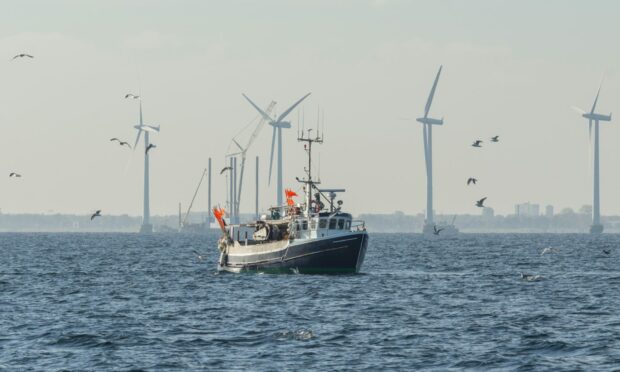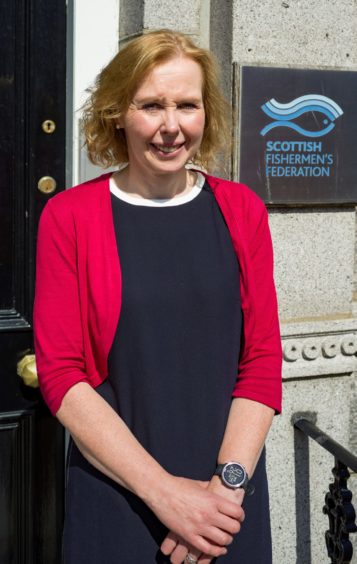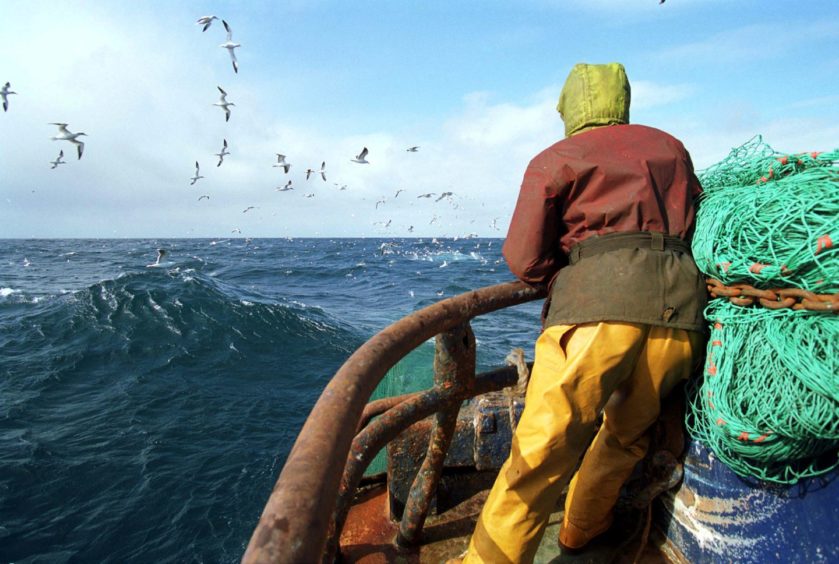Fishers have reacted with concern to the ScotWind announcement of 17 lease options to develop Scottish offshore wind farms.
Responding to Crown Estate Scotland (CES)’s big reveal, when it named the projects in line to deliver a sea change in offshore renewable energy output, the Scottish Fishermen’s Federation (SFF) warned “proper scrutiny” must be given to developers’ claims wind farms and fishing can co-exist with little change to existing patterns of activity.
Anger over rush to develop wind farms in rich fishing grounds
SFF chief executive Elspeth Macdonald said: “While it is clear substantial additional offshore renewables will be required for Scotland to meet its net-zero target, we are understandably anxious and concerned about the potential impact of these and future offshore renewables projects on the Scottish fishing industry.
This is a vast area and the majority of the successful projects are for floating offshore wind, which creates even greater spatial and co-existence problems for fishing than fixed turbines do.”
Elspeth Macdonald, CEO, Scottish Fishermen’s Federation.
“The 17 projects announced today (January 17) by Crown Estate Scotland have been offered option agreements which reserve the rights to specific areas of seabed amounting to in excess of 7,000sq kilometres (more than 2,700 square miles).
“This is a vast area and the majority of the successful projects are for floating offshore wind, which creates even greater spatial and co-existence problems for fishing than fixed turbines do.”
‘Catching fish is already a climate-smart industry’
She added: “Through the SFF and its constituent associations, the industry has always sought to engage constructively with offshore developers and will continue to do so.
“However, it needs to be recognised at the highest levels within the renewables industry and in the Scottish Government that catching fish is already a climate-smart industry that produces nutritious, high-protein food with an extremely low carbon footprint.
“It is also an industry that supports many jobs and businesses ashore, and is vital to Scotland’s coastal communities.
“In the rush to energy transition, it is vital that our industry’s voice is properly heard and the fleet’s access to Scotland’s productive fishing grounds is protected.”
Ms Macdonald continued: “In particular, proper scrutiny must be given to developers’ claims that offshore wind farms and fishing activity can co-exist with little change to existing patterns of activity, since our experience to date shows very strongly the opposite is the case.
“Fish are not uniformly distributed in our seas – the fleet cannot simply move somewhere else.
"We are understandably concerned anxious and concerned about the potential impact of these and future offshore renewables projects on the Scottish fishing industry."https://t.co/em5WJVSgYM
— SFF (@sff_uk) January 17, 2022
“We need genuine and meaningful engagement, mutual respect and an even-handed approach to planning, consenting and licensing.
“Marine renewables are clearly part of Scotland’s transition to net-zero, but so is fishing.
“For this to be a just transition, there must be space for both to succeed.”
Relief in Shetland – for now
Shetland fishers expressed relief after it emerged that a large area to the east of the islands is – for now at least – not going to be developed by the offshore wind industry.
CES said some interest was shown in a designated large area east of Shetland but no applicant was successful in securing a lease.
Shetland Fishermen’s Association policy officer Sheila Keith said there was concern about other projects proposed for waters off Shetland and fishers’ voices needed to be heard.
‘Other developments are being discussed’
Ms Keith added: “We are relieved with the news there will be no development in the fishing grounds closest to Shetland.
“However, we are aware that other developments are being discussed.
“We will continue to make the case to protect Shetland’s world-class fishing grounds for future generations by working with the government and potential developers for successful co-existence of both fishing and renewable energy projects.”
Projects currently proposed for areas of sea near Shetland would deliver energy to power oil industry installations and large amounts of hydrogen.
Shetland Islands Council chief executive Maggie Sandison said she expected further licensing rounds to be held in the future.
The time until then should be used to “secure Shetland’s interests in this new industry”, Ms Sandison said, adding: “If things like community benefit become an industry standard, then we wouldn’t want to be in a position where we are not engaged in those conversations.”
Will new roadmap deliver harmony between fishing and floating wind?


